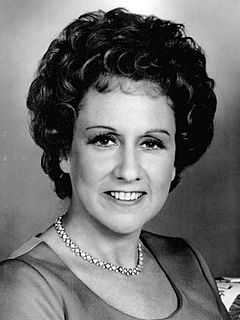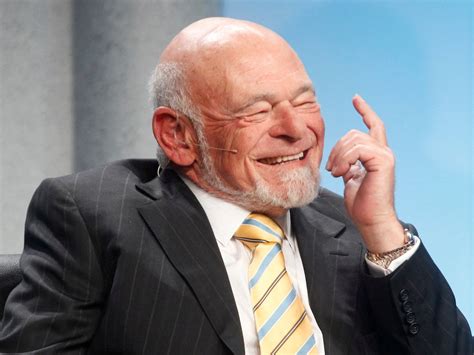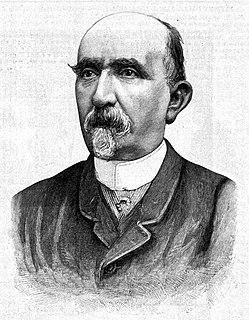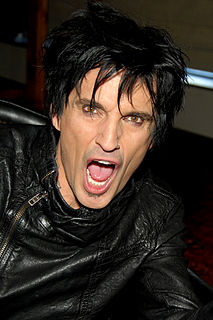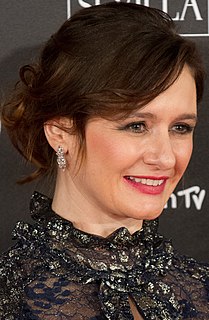A Quote by Jean Stapleton
First, you do a piece of material that begins and ends and has a flow; it's not chopped up as in a film, where in an extreme case you might be doing the last scene of the script the first day that you go to work, and you don't know enough about the character you're playing.
Related Quotes
Everything we do on 'Luck' is absolutely no different than if we'd had been doing it in a feature film. There's no short cuts. The specificity of what every single line might mean. Everything Dustin Hoffman does. Kevin Dunn is as authentic in the last scene of the last episode as he is in the first scene of the first episode.
I'll generally write out every scene that's in the film on a couple of pieces of paper, just with a little one-line. And then I can scan it a bit and go, 'This first third of the film, generally, I'm kind of calm.' Then I might do something on one piece of paper that just relates to the energy of the character.
I seek a diverse spectrum of roles. If I just was in a large-budget feature for a younger audience, then I want to find a smaller, more character-driven piece that might be for a more mature audience. Or if I'm playing a goofier character, then maybe I want to go play a serious, psychopathic character. But at the same time, it's usually a case-by-case basis where I'm judging the merit of a role by the script I'm given, and it usually has less to do with the larger framework and more to do with how the part personally appeals to me in that moment.
What is a scene? a) A scene starts and ends in one place at one time (the Aristotelian unities of time and place-this stuff goes waaaayyyy back). b) A scene starts in one place emotionally and ends in another place emotionally. Starts angry, ends embarrassed. Starts lovestruck, ends disgusted. c) Something happens in a scene, whereby the character cannot go back to the way things were before. Make sure to finish a scene before you go on to the next. Make something happen.
Perhaps if there is anything remotely interesting about my writing style, it is this: more often than not I have no idea what the story is going to be about. Sometimes I have a fuzzy vision, or a glimpse of one scene, or a character. But mostly all I have is a random first sentence, and I follow it to see where it might go. For me, writing is the process of discovery, of gradually figuring out what happens in the story and how it ends, that makes writing an interesting process for me.
It's a hard thing to do, to be given a script, and know that you've got to turn up on the first day of the shoot - generally without having had any rehearsal - and present a character. It's really baffling; it's incredibly hard to know how to begin, to approach it, other than just thinking about it.
I actually went to see 'Rushmore,' and I came late, and I missed myself. It was great, that scene. I caught that scene the other day on TV, funny enough, the first scene that you see with Jason Schwartzman and myself, where we talk about his grades. That's a brilliant scene, and I have to say, we play it brilliantly.
When you start out as an actor, you read a script thinking of it at its best. But that's not usually the case in general, and usually what you have to do is you have to read a script and think of it at its worst. You read it going, "OK, how bad could this be?" first and foremost. You cannot make a good film out of a bad script. You can make a bad film out of a good script, but you can't make a good film out of a bad script.
